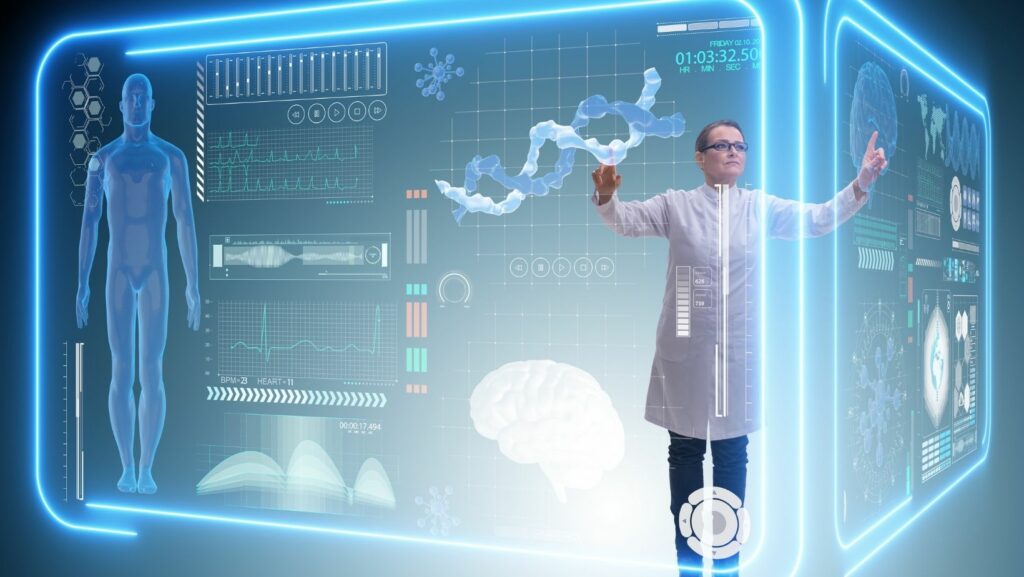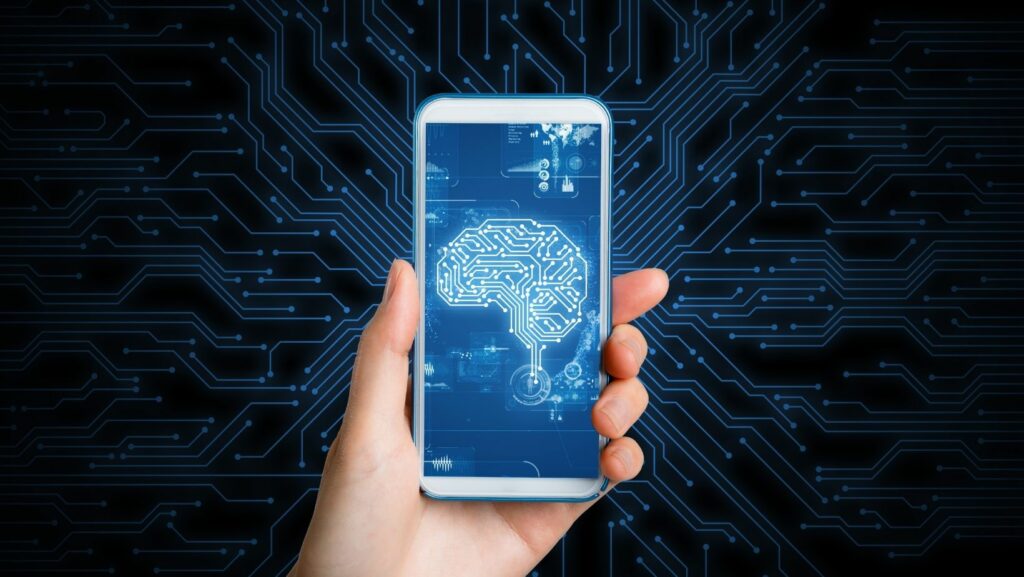Imagine a world where healthcare is revolutionized by artificial intelligence. A world where AI doesn’t just assist but actively creates new solutions, unlocking unprecedented breakthroughs. Welcome to the realm of generative AI in healthcare.This technology isn’t a distant dream—it’s here, reshaping the healthcare landscape. From drug discovery to personalized patient care, generative AI is the catalyst for innovative medical miracles. But what does this mean for healthcare professionals, patients, and the future of medicine?
Generative Ai In Healthcare
Generative AI, a sector in the broader artificial intelligence spectrum, pertains to algorithms capable of generating new content from existing data sets. Through intricate machine learning algorithms, it can, for example, synthesize chemical compounds, predict beneficial drug combinations, or construct patient-specific treatment plans.
Understanding How Generative AI Works
In essence, generative AI employs artificial neural networks structured similarly to the human brain’s neural layout. These neural networks, given sufficient input data, analyze patterns, learn from them, and produce comparable unique content. Consider, for instance, the scenario of drug discovery. Generative AI can examine vast amounts of data on efficacious drugs and their chemical structures, proactively predict a new drug compound’s potential benefits, and even suggest continued optimization paths.
Generative AI’s Potency in Healthcare
A key strength of generative AI lies in its ability to leverage colossal data databases. In healthcare, patient records, genetic data, and countless medical studies constitute a treasure trove of data that generative AI can tap into.
It’s through analysis of such extensive health-related information, generative AI can, for example, render accurate diagnoses, anticipate patient health trends, or propose tailored treatment pathways.
Innovative Applications of Generative AI
Generative AI’s utility extends beyond theoretical applications. Pioneering companies in the medical field have already begun integrating this technology into their operations. Firms like Insilico Medicine harness the power of generative AI to accelerate drug discovery timeline, a process that traditionally takes years, down to mere months, evidenced by their successful synthesis of multiple drug candidates.
On a broader scale, generative AI fortifies personalized patient care. AI systems, such as those employed by Tempus Labs, utilize patient information to decode disease patterns and assess potential treatment responses, elevating precision medicine’s efficacy.
Understanding the Basics of AI in Healthcare
Dipping into the essence of AI’s role in healthcare serves as the bedrock for comprehending its significance. Primarily, it’s about improving patient outcomes via intelligent, data-driven decisions. Further, by distinguishing traditional AI from its generative counterpart, one can grasp the depth of transformation promised by this innovation.
AI acts as a catalyst in present-day healthcare systems, yielding enhanced efficiencies and improved patient outcomes. For instance, it aids in processing vast quantities of patient data. By analyzing medical records, lab results, and imaging studies, AI tools can provide valuable insights, influencing diagnostic and treatment decisions.
Difference between Traditional AI and Generative AI
While both are under the AI umbrella, traditional AI and generative AI differ significantly. Traditional AI typically employs machine learning and deep learning techniques for classification tasks – it focuses on identifying patterns and making predictions based on existing data. An example includes IBM’s Watson, which assists physicians by offering evidence-based treatment options from a vast knowledge base.
In stark contrast, generative AI, like its name suggests, generates new data patterns. Inspired by human brain functionality, these algorithms create content from existing data. This opens up possibilities like simulating potential disease progression or creating synthetic patient profiles for research. In essence, generative AI not only provides insights but also creates new possibilities for prediction and personalization in health care.
Generative AI’s role in healthcare is undeniably transformative. It’s reshaping drug discovery, personalizing treatment plans, and making healthcare more accessible. The journey isn’t without hurdles, as ethical and privacy issues, potential biases, and data quality needs pose challenges. Yet, companies like Insilico Medicine are leading the way, leveraging this technology for innovative solutions. The future of healthcare is promising with generative AI at the helm. Personalized medicine is advancing, treatments are tailoring to genetic specifics, and virtual clinical trials are becoming a reality.



